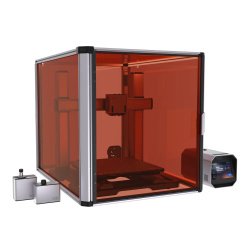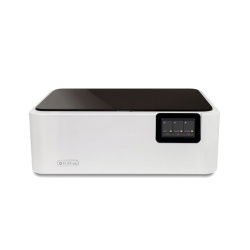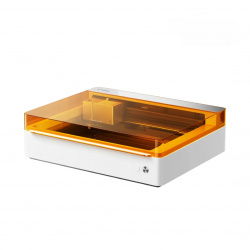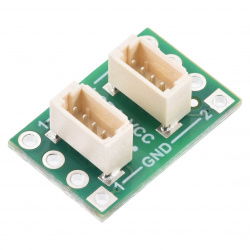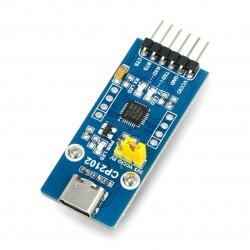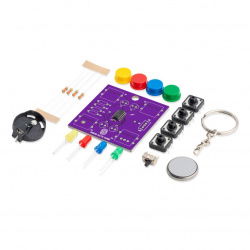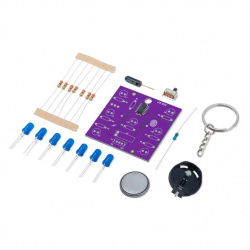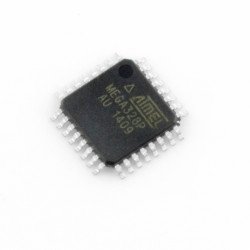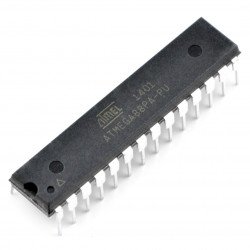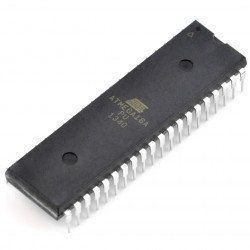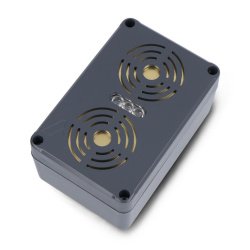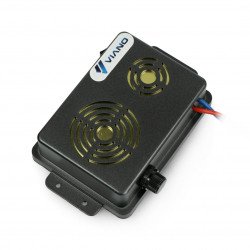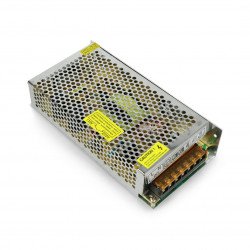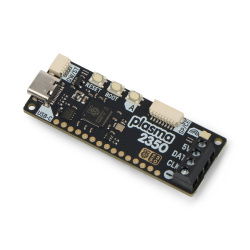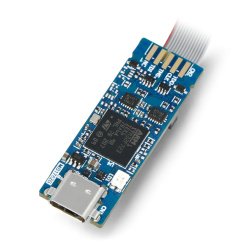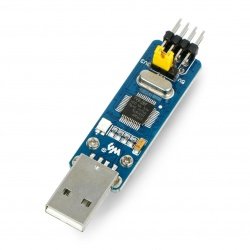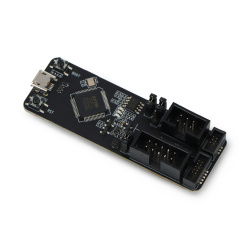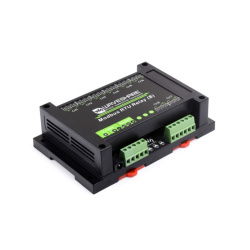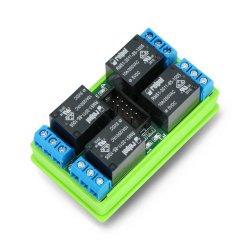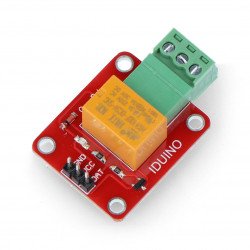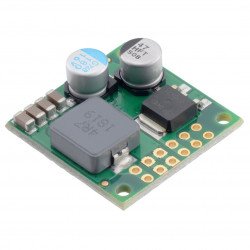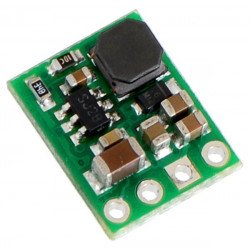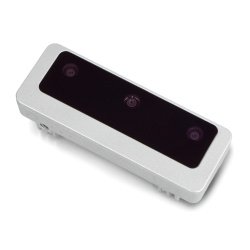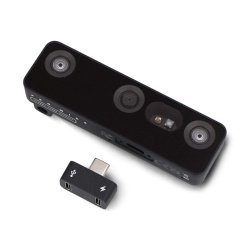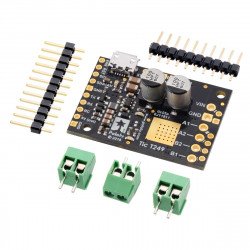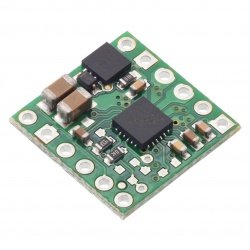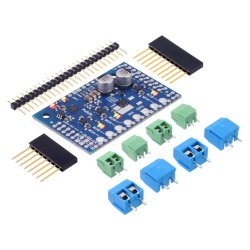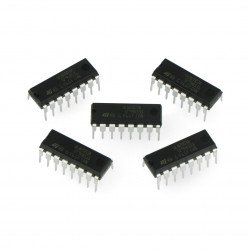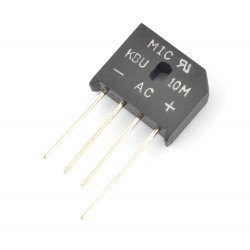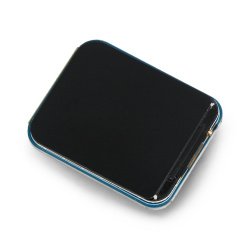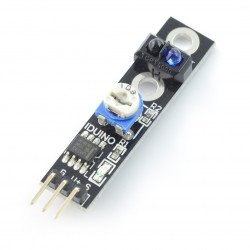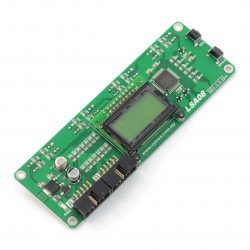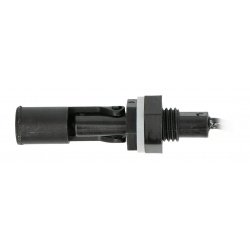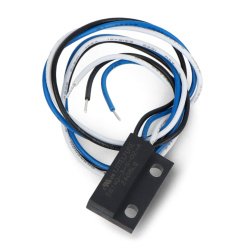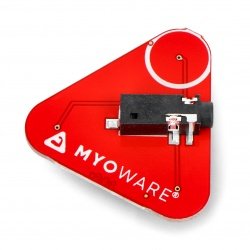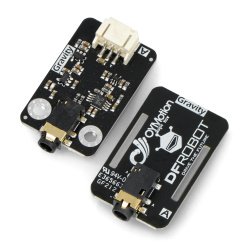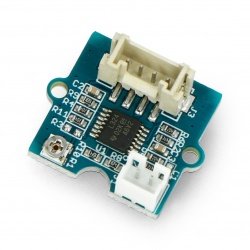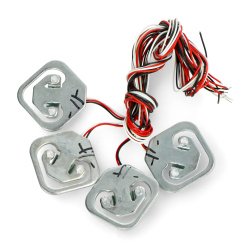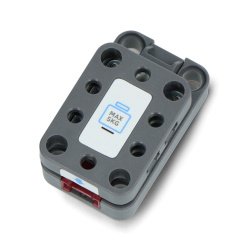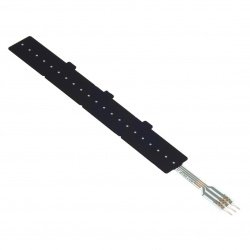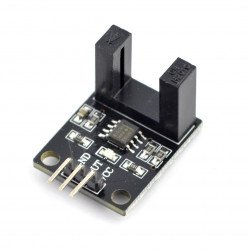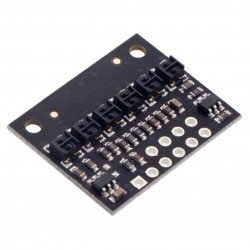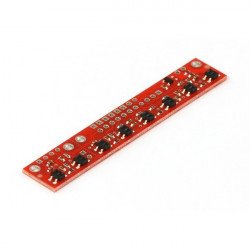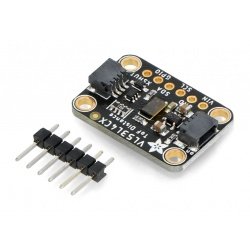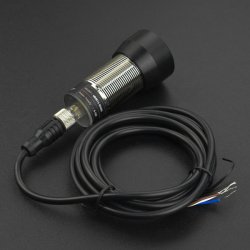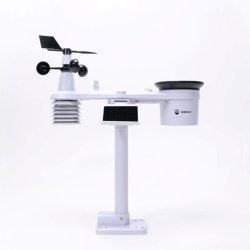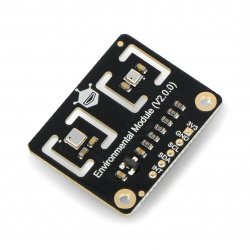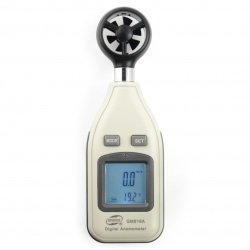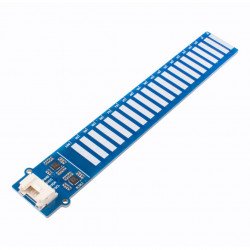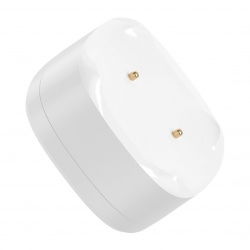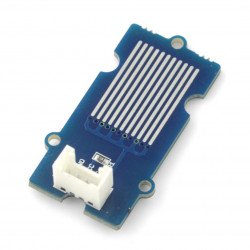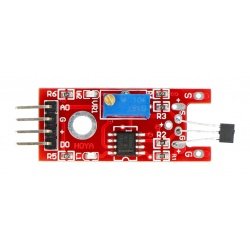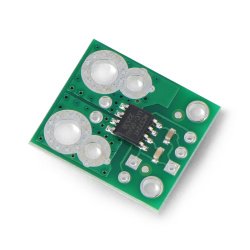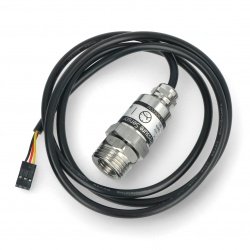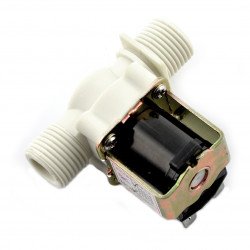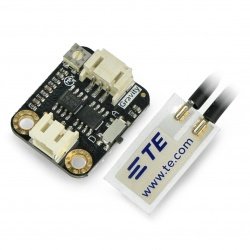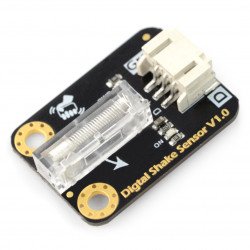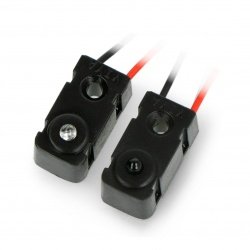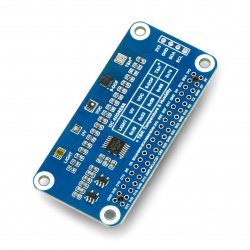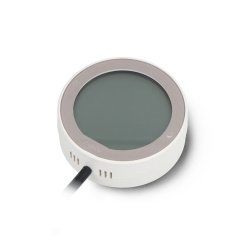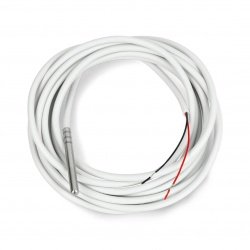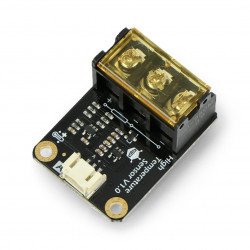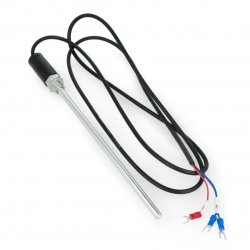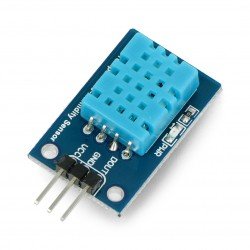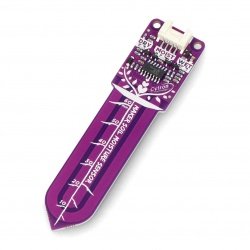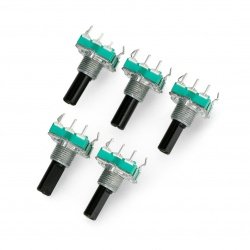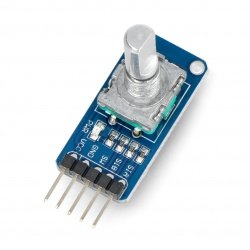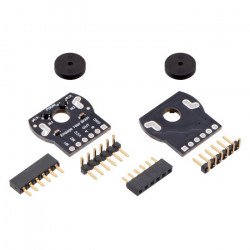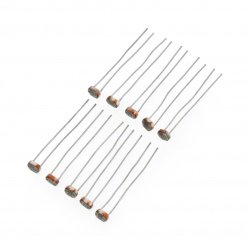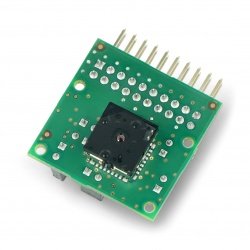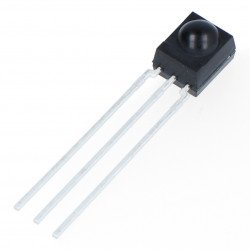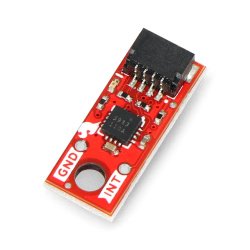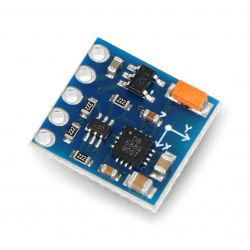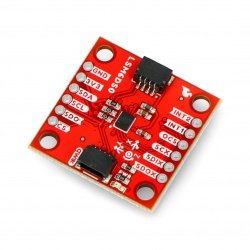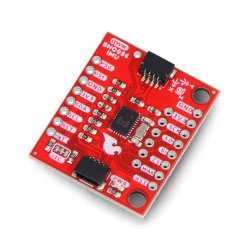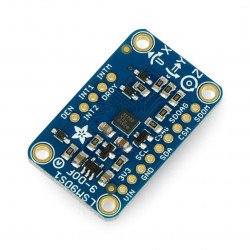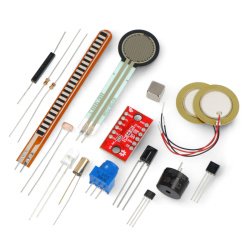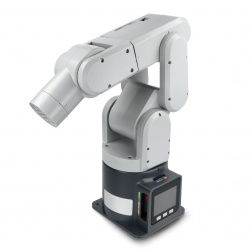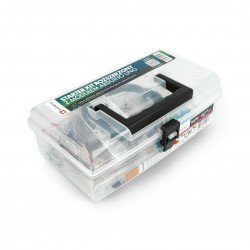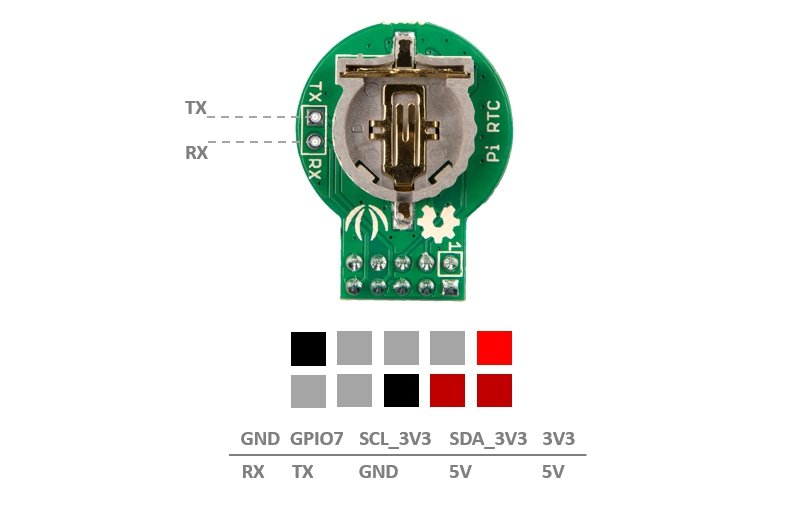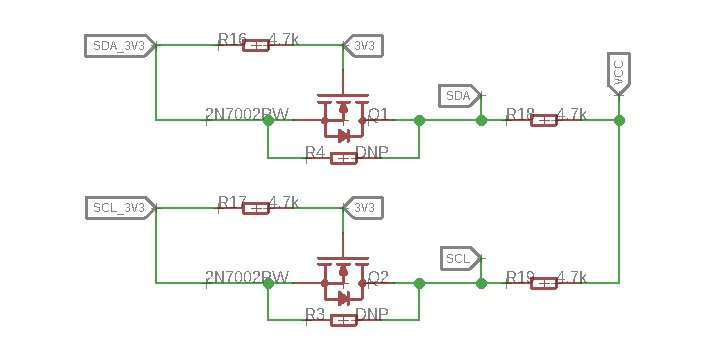 The RTC Real Time Clock Pi is based on the DS1307. The Raspberry Pi is connected via the I2C bus.The real time clock counts seconds, minutes, hours, day of the month, day of the week including the leap year up to 2100. The clock operates in 24 or 12 hour mode with AM/PM (morning/evening) indicator. If you want the module to continue to calculate the time after disconnecting the Raspberry Pi from the power supply, you must install a CR1225 3 V lithium battery.
The RTC Real Time Clock Pi is based on the DS1307. The Raspberry Pi is connected via the I2C bus.The real time clock counts seconds, minutes, hours, day of the month, day of the week including the leap year up to 2100. The clock operates in 24 or 12 hour mode with AM/PM (morning/evening) indicator. If you want the module to continue to calculate the time after disconnecting the Raspberry Pi from the power supply, you must install a CR1225 3 V lithium battery.
| Buy now |
Properties
- Works with Raspberry Pi 2/ 3 B/B+ Zero
- Calculates seconds, minutes, hours, days of the week, month, year
- Operates in 24 or 12-hour mode with AM/PM indicator (morning/evening)
- 56-bit non-volatile (NV) RAM with battery backup for data storage
- Dual-wire serial interface
- Programmable rectangular waveform output signal
- Automatic detection of power or switch circuit failure
Specification
| Feature | Value |
|---|---|
| Operating voltage | 5 V |
| Interface | I2C |
| I2C address | 0x68 |
Typical applications
Each application for Raspberry Pi requires real time
Exit scheme
|
Note RX/TX was not used with this module, but the strip with 5x2 pins occupies the RX/TX pin with Raspberry Pi, so we exit the RX/TX and come out with a 2-pin plug. |
Diagram
Bi-directional level changer
This is a typical bi-directional level switch converter for connecting two different voltage sections of the I2C bus. The I2C bus to Raspberry Pi uses 3.3V and the DS1307 chip works at 5V so the converter will be necessary. In the above diagram Q1 and Q2 is an N-channel MOSFET 2N7002A, which works as a two-way switch. To better understand this part, you can refer to AN10441.
How to get started
Required equipment
| Raspberry Pi | Pi RTC (DS1307) |
|---|---|
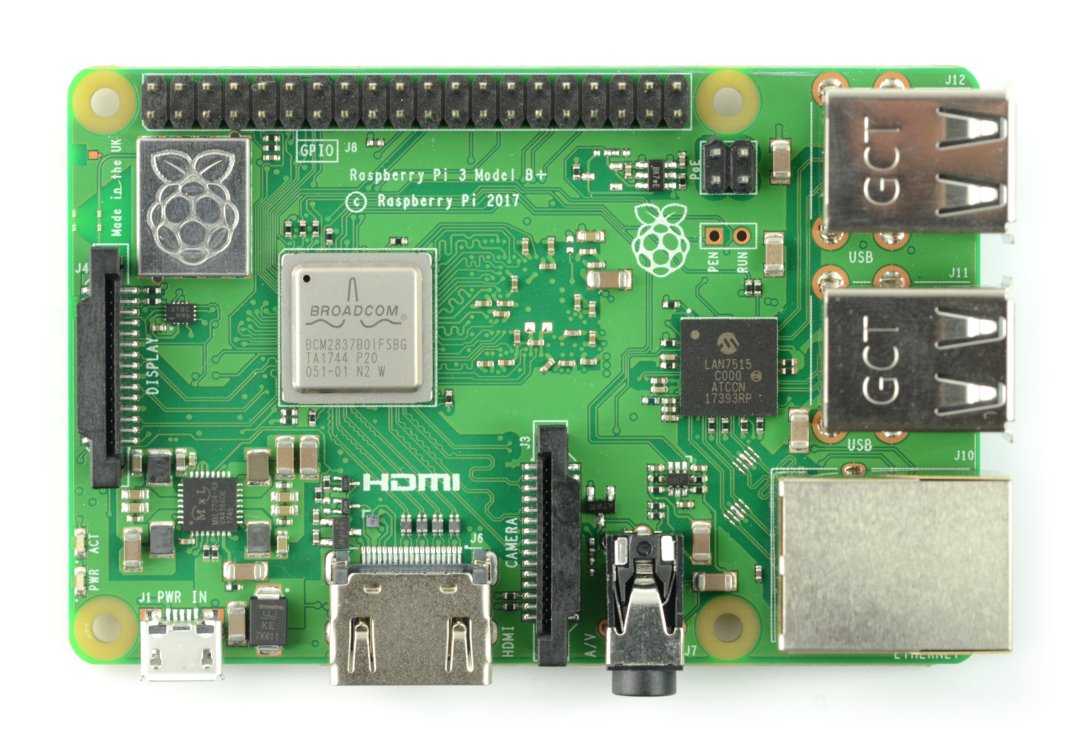 |
 |
| Buy now | Buy now |
|
Note Please connect to the USB port carefully, otherwise it may be destroyed. Please use USB cables with 4 wires inside, those with 2 wires do not transmit data. If you are not sure about your cable, you can buy it here. |
Installation
The driver we provide only applies to Raspbian Jessie/Stretch.
| Tip Ifyou do not know how to use Raspberry Pi, go here beforeyou start. |
- Step 1: Installation of the driver
Enter the following command into the terminal
git clone https://github.com/Seeed-Studio/pi-hats.git
When the download is complete, enter the following command into the terminal
cd pi-hats sudo ./install.sh -u rtc_ds1307
- Step 2: Disconnect the power supply to Raspberry Pi
sudo shutdown -h now
- Step 3: Insert the cap into Raspberry Pi
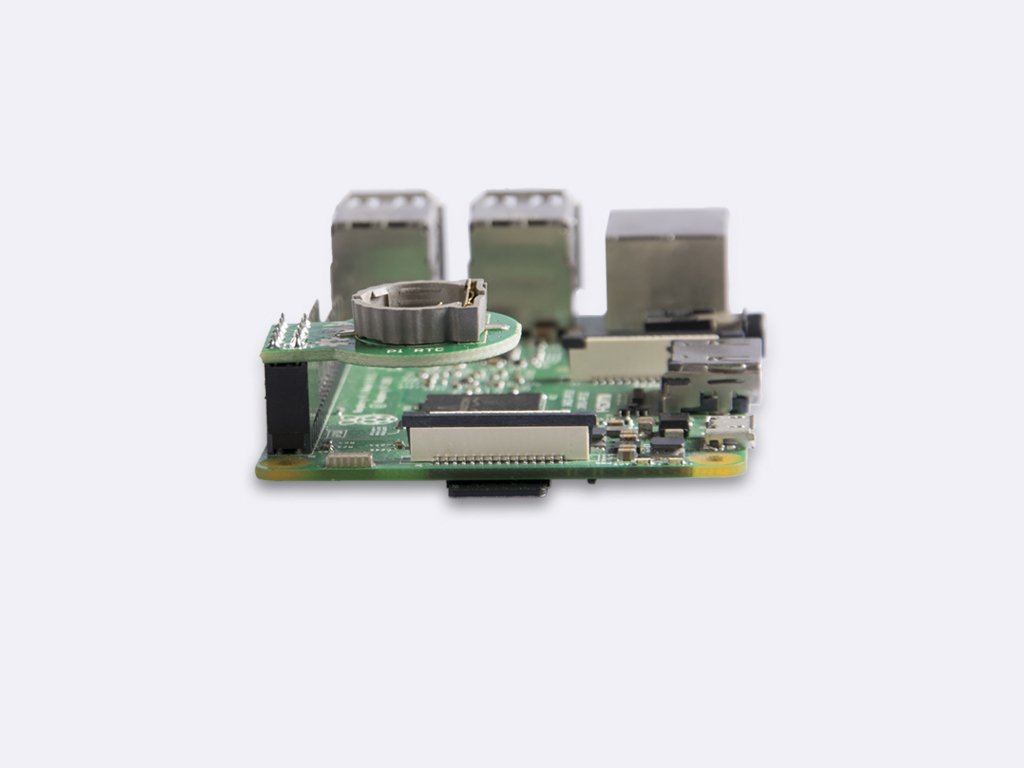
Make sure to connect pin 1 of the cap to pin 1 on the GPIO Raspberry Pi plug, exactly as shown above.
- Step 4: Connect the power supply to the Raspberry Pi
Applications
Now you can enter the following command to check if the driver is installed correctly.
./install.sh -l
If you want to uninstall the driver, use the command below:
sudo ./install.sh -u
Now let's see what the RTC real-time clock module can do:
Read the hardware clock and print out the result
sudo hwclock -r
sudo hwclock -s
Set the hardware clock from the current system time
sudo hwclock -w
More applications
hwclock --help
Links
-
[Zip] Pi RTC(DS1307) Eagle files
-
[http] SeeedPi RTC Library
-
[PDF]Documentation DS1307
Project
This is a video of the product




